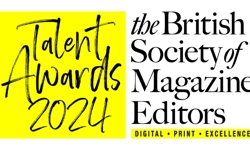I vividly remember the day I left home at sixteen.
Off to join the Royal Navy. It was a daunting time. Five hours after leaving Wigan North Western station, I arrived in Plymouth to be met by the Naval Police, along with many others in the same boat (excuse the pun).
Our glorious welcome involved around sixty of us ‘would be matlots’ being herded into a room and having our heads unceremoniously shaved, leaving everyone exposed, on the same level, a little bewildered, yet mildly excited at the step we had already taken and what was yet to come.
Now began the process of establishing a position in this young group. Would you lead or would you follow?
The situation within today’s highly fragmented media environment reminds me of this experience.
The speed of change in technological advancement has (admittedly over a longer period than it takes to chop your locks off) left us feeling exposed, mainly to rampant and nimble online competitors, a little bewildered in respect of the skills and knowledge gaps between traditional print publishing and multi-platform delivery, yet very excited and highly encouraged by our progress and the infinite future possibilities for the many newspaper businesses that have been re-born as ‘media groups’.
MEN Media Limited is no exception. Publishing the Manchester Evening News (with our part paid / part free business model), broadcasting via satellite, cable and analogue with Channel M television, a network of eighteen websites, twenty three weekly newspapers and a stable of guide books and niche publications in the property and jobs markets, enables us to reach nine out of ten adults each week within our Greater Manchester franchise.
This eclectic media stable ensures that for advertising customers we can create highly targeted solutions to reach a desired target audience and for readers, viewers and online users, news and information is provided throughout the day and night via a convenient, timely and relevant medium.
So where are we today?
For around three years prior and since moving into our new state of the art HQ in central Manchester in October last year, MEN Media has aggressively pursued a convergence strategy.
From an editorial perspective, this has necessitated a sea change in our approach. How do we adopt a culture where the nature of news dictates the medium hierarchy relative to each story?
The creation of our multi-media news hub embedded this philosophy within the business. Led by our convergence editor, Ian Wood, a team of journalists and section editors representing all our various media collaborate daily on the hub, ensuring all news output is maximised via the appropriate media platform at the optimum time.
Convergence is a word often heard in modern media organisations and most of us will have sat through presentations regarding its philosophy and how it is the future – many are talking the talk, yet we are very much walking the walk.
Convergence is like public transport – everyone thinks it is a good idea… for everyone else.
In Ian’s words, "we are pioneering convergence with a purpose." This is a way of life that requires far more than mere cooperation.
For example:
* We have taken the opportunity to reconsider everything we do.
* Questioned tradition and the received wisdom of: the sanctity of the exclusive, the priority of print, and the assumption that the journalist knows best.
* Planning, collaborating and publishing in order to create the maximum possible benefit for the entire group.
* Reorganised ourselves around a central hub.
* Created a forum where editorial representatives from across MEN Media’s stable can participate at all times. This now includes our GMG Radio colleagues relative to Greater Manchester.
Training is a vital ingredient within this cultural shift, thus equipping journalists from print backgrounds with skills as video journalists, able to film, present and edit packages for the web or TV. As a founding partner in North Carolina’s IFRA sponsored Newsplex centre, we have sent over forty journalists to the USA for intensive training on the principles of convergence.
This continual process is underpinned with an exchange programme between media platforms, with a number of reporters migrating around the group and developing a broad spectrum of skills.
What does this actually mean and what does it look like in practice? We can boil it down into three key areas:
* Communication
* Organisation
* Journalism
1. Communication
We have invested much time defining and refining our vision of convergence and are continually communicating that through the division so everyone knows what is expected. This is achieved via individual and group briefings, intranet presentations and by making convergence a key element of staff appraisals.
For us, this is no longer theory – this is reality.
Today in our convergent newsroom, we are focused on telling the best stories in the best way possible. This approach transforms our content from a monologue into a vibrant conversation both between journalists within our group and with our readers.
We are better equipped than ever before to tell stories, and tell them well. People want what we produce. The appetite for news has never been so great.
The challenge we face is to deliver content in a way and at a time that suits our audience, rather than suiting us.
We have also redefined our criteria for success:
* Exclusives and scoops are counter-productive if they exclude or "scoop" our partners.
* We now look at the overall benefit to MEN Media rather than single hits for specific platforms.
In practice, all of this can be hard for some to swallow. For example, print generates the most exclusive content yet is maybe the worst medium through which to break a story, so we might lead on Channel M television’s live news programme and the web.
From a commercial perspective, the ‘portfolio’ sales approach is very powerful as it provides advertising customers with an eclectic and flexible mix of opportunities to reach their target audience.
The recent IKEA store launch in Greater Manchester gave MEN Media a perfect opportunity to demonstrate its ability to deliver a multi platform solution - from A-boards and van sides, to television and online.
It is beyond the scope of this article to address multi-platform publishing in the context of advertising sales, suffice to say that the two key challenges I believe we face are:
* Providing our sales teams with the knowledge and skills required in a multi-media environment.
* Development of a robust cross media trading currency – this issue is currently being addressed at industry level through the Newspaper Society.
2. Organisation
The key to doing this successfully and for maximum group benefit rather than just benefiting the fastest platform, is cross referencing and branding.
We should aim to leave our audience in no doubt about the links between our media products. This is now common practice and is illustrated by our coverage of the Jessie James murder inquest.
By way of an alternative example, Channel M news presenters would promote the Manchester Evening News lead story for the following day, encouraging both free pick up and paid sales.
Whenever there is material to support it, we cross reference and signpost to video and audio online and perhaps the best example of this cross reference activity is in live broadcasting of Channel M News directly from the MEN Media news hub with the programme ending with the night editor.
Convergence is not about quicker publishing – it’s about smarter publishing.
Planning is everything and convergence doesn’t work on the fly. Editorial conferences involve representatives from across the group – champions for each medium thrash out how to publish as well as what to publish. An intranet diary allows transparency and prevents duplication of effort, and special convergence meetings are held to plan for major events.
Recently, Greater Manchester underwent a major shake-up of maternity services. The timing of the decision was late afternoon and this would traditionally have left us in the lurch. But, our convergent approach allowed us to effectively cover this important local news.
3. Journalism
In the end, we will be defined by the quality of our journalism – it underpins everything we do. Convergence only makes sense if there is first rate content to share in the first place and it remains vitally important that, in our enthusiasm for finding new ways to publish, we don’t overlook the fundamental importance of gathering top quality content.
Going forward, our major challenges are in ensuring that quality is maintained and developed, that appropriate investment is made in training and development of editorial and commercial colleagues and that at every opportunity we encourage all of our employees and customers to sail with us on our voyage of convergence.
The net result will be highly positive and will ensure that:
* We are using content more effectively than ever before.
* We are reaching a greater audience than ever before.
* We are providing that audience with better coverage.
* We are providing advertisers with unprecedented reach and flexibility.
What is happening in Manchester is real – we are playing our part in redefining the modern newsroom.
FEATURE
Multi-Platform Publishing
MEN Media Group has been at the forefront of multi platform publishing for some time now. Mark Rix explains why the core strategy of convergence has been vigorously pursued throughout the organisation.










